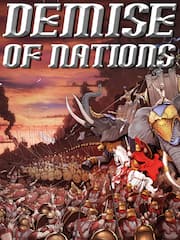eos4j is a minimal Java wrapper around the Epic Online Services (EOS) SDK. It provides a Java-native interface while aiming to conform very closely to the structure of the EOS C SDK.
It was originally implemented to support the release of Feud on the Epic Games Store.
A simple sample application showing basic functionality is available.
eos4j supports Java 8 and above, and has natives built for the following platforms:
- Windows x64
- macOS x64
- macOS ARM64 (Apple Silicon)
- Linux x64
A loader based on LWJGL is included, but you are welcome to provide your own.
Built your game using eos4j? Submit a pull request to put it here!
Releases are published to Maven Central, so you can use your favourite dependency management tool to fetch it.
// Gradle
dependencies {
implementation "com.bearwaves:eos4j:1.1.0"
}Snapshots are also published, if you want to be at the bleeding edge. Make sure you have the OSS Snapshots repository declared.
// Gradle
maven { url "https://s01.oss.sonatype.org/content/repositories/snapshots/" }
dependencies {
implementation "com.bearwaves:eos4j:1.2.0-SNAPSHOT"
}If you just want the JAR, see the releases page.
eos4j provides utilities to load the native libraries, but it does not include the natives for the EOS SDK itself due to licensing restrictions. You should download the SDK yourself from EOS portal and ensure the library binaries are in your classpath. They are:
| Platform | File |
|---|---|
| Windows | EOSSDK-Win64-Shipping.dll |
| macOS | libEOSSDK-Mac-Shipping.dylib |
| Linux | libEOSSDK-Linux-Shipping.so |
Once your build is set up, you can initialise the library in your Java code like so:
import com.bearwaves.eos4j.EOS;
if (!EOS.loadLibraries()){
throw new RuntimeException("Couldn't load EOS libraries");
}From here on you can follow the EOS C SDK documentation and adapt it as you see fit.
eos4j is documented very minimally - this is a deliberate choice. Instead, every effort has been made to have the structure of the library conform as closely as possible to that of the EOS C SDK, meaning you should be able to use the official documentation without issue.
Callbacks are implemented as interfaces and lambdas can be used.
If you find something which doesn't map neatly, is confusing, or would benefit from additional documentation, please do open an issue.
The goal is for eos4j to implement the entirety of the EOS SDK, but it isn't quite there yet. At the time of writing, the following are implemented.
Releasing is implemented as methods on returned classes, rather than as a function.
- Create and release
- Tick
- Get handles for implemented interfaces
- Set callback
- Set level
- Logging in
- Logging out
- Copying ID token
- Copying auth token
- Logging in
- Creating a user
- Coping ID token
- Token expiry callback
- Ingest stat
- Query stat
- Get stat count
- Copy stat by name
- Copy stat by index
- Unlock achievements
- Leaderboard definitions (query/count/copy)
- Leaderboard ranks (query/count/copy)
- Leaderboard user scores (query/count/copy)
- Catalog offers (query/count/copy)
- Entitlements (query/count/copy), entitlement token, redeem
- Query ownership, ownership token
- Checkout
- Transactions
- Count and copy by ID/index
- Get transaction ID, count and copy entitlements
If there's something missing that you need, please do open an issue. PRs are very welcome.
eos4j is heavily inspired by the excellent steamworks4j.






